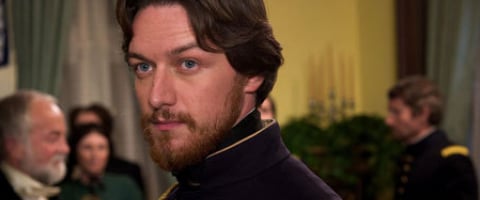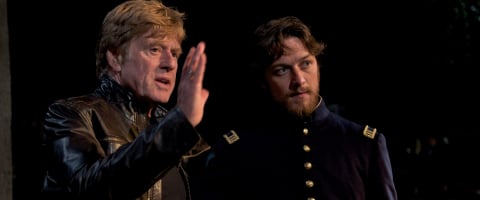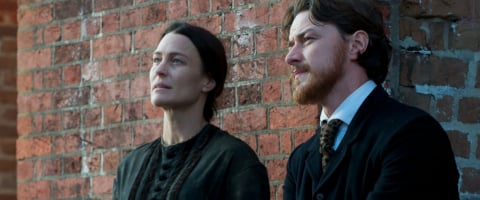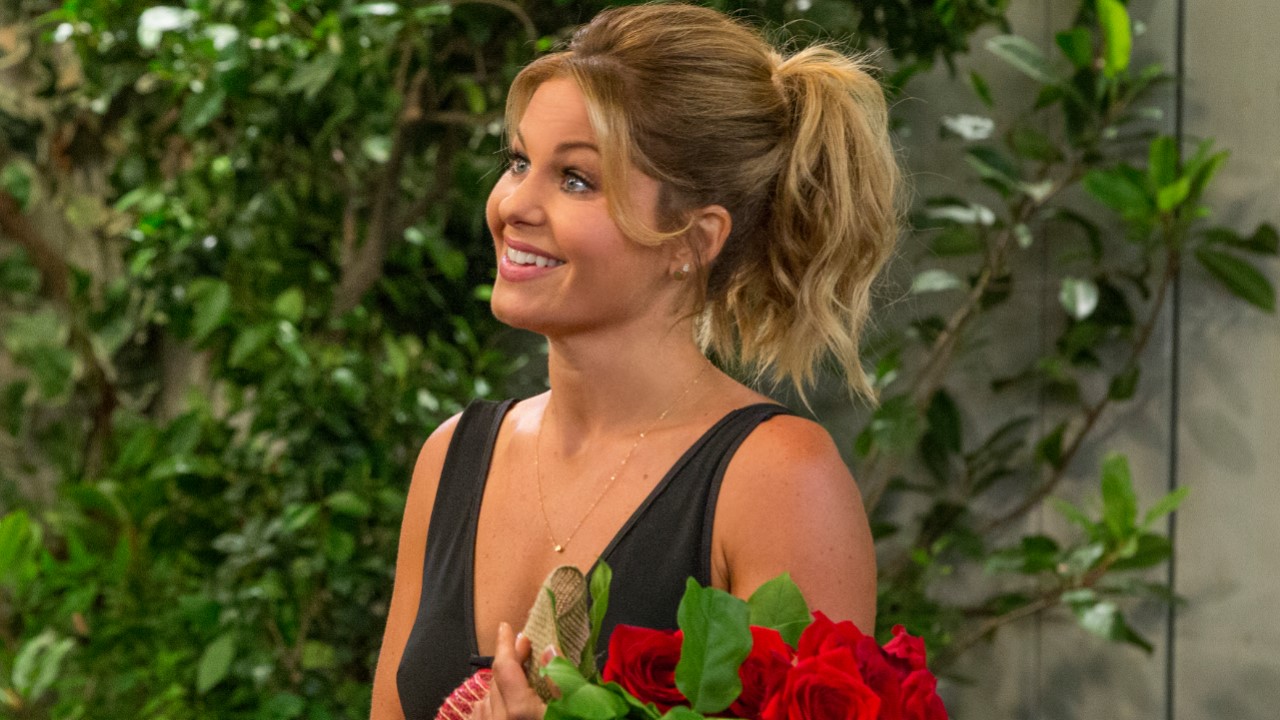Interview: The Conspirator's James McAvoy On Representing America And Robert Redford

Your Daily Blend of Entertainment News
You are now subscribed
Your newsletter sign-up was successful
Robert Redford's new film The Conspirator aims to tell a section of American history that few of us know, the trial following Abraham Lincoln's assassination of the Confederate sympathizers who planned the attack (no, it wasn't just John Wilkes Booth acting alone). The only woman put on trial was Mary Surratt, who owned a boarding house where the conspirators met and whose son had already been convicted of participating in the plot; assigned by the government to defend her was Frederick Aiken, a veteran of the Union army who was understandably hesitant to defend the woman who may have helped kill his President.
The story of Aiken's defense, Surratt's likely innocence and the fraught political atmosphere of the time makes up The Conspirator, and James McAvoy, who stars as Aiken, admitted there was a lot of reading and research that went into the process of being prepared to make it. Not only was he playing a character who he says "represents America" at the time, but he was a Scotsman learning about history that even Americans don't learn; on top of it all he was acting in front of Redford, a legendary director as well as actor whom McAvoy says he was afraid would watch his leading man performance and say behind the camera, "I wouldn't do it like that."
I talked to McAvoy on the phone earlier this week about the research that went into starring in The Conspirator, how he got over his initial terror of Redford, and why this particular segment of history resonates with him. We touched very briefly on X-Men: First Class at the end, where it becomes pretty clear that his intimidation at Redford is nothing compared to what the comic book geeks will bring out when that movie hits theaters in June. Check out the interview below, and look for The Conspirator in theaters this Friday.
This movie tells part of American history that nobody knows, and given that you're not American it must have been even more of a lesson for you. Was there a lot of history to learn before going into this?
Yeah, a hell of a lot. I knew about Lincoln and I knew what happened, but I didn't know anything else really. It was actually an interesting film for me, especially rehearsals and the period when I was researching, because I got to read so much that I probably wouldn't have gone to myself.
Do you like that aspect of making historical movies, the research?
Yeah, I do. I like reading about the past. I'm definitely not a history buff, but I do read a bit of history now and again, and to do that for work is really exciting. To read about another country, about America. I don't read that much about American history. The history that I've read is weirdly more focused on the colonies and the kind of fall of the empire. It was really good to diversify.
Your Daily Blend of Entertainment News
There are all these clear parallels to modern times and the way we've handled rights during this more recent war, and Robert Redford seems very interested in those parallels. Was that part of the conversations you had during filming, or before filming?
It was impossible not to see the parallels, and how abundantly resonant it all is. I think this story would and probably should be told anyway whether there are parallels or not. We didn't really talk about the parallels that much on set, because it's so clear. You have to be blind to miss them. It became incumbent on us not to point them out too much, because it was already pointed out, you couldn't hide it. Otherwise it's ramming it down peoples' throats.
You focus on the character and the actions on the screen. We did some research and some etiquette and all that, but Bob is really into being streamlined and simple in our storytelling so that the story comes to the fore.
You say etiquette-- did you have to go to 19th century charm school?
Not quite so much, no. We formalized everything a little bit. We couldn't abbreviate words, everything was the long way around a sentence. It was actually kind of beautiful sometimes, and just a kind of stiffness. And most of the men in the film are lawyers and professionals, orators and men who have held positions of middle to high command in the army. They're used to speaking with authority and being obeyed.

You have to own the space in all those courtroom scenes, speaking in this way that you wouldn't normally.
It was really lovely, to get that massive space for the courtroom, which was an arsenal, a storeroom in an arsenal because they didn't want to take that trial anywhere outside of a fortified place. To be able to do it like a piece of theater, and Bob would generally let me run takes as long as I wanted, because that's kind of the way I like to do it, not break it up.
Is that improvisation, or just taking your time with the words?
If a scene is three pages long, quite often people break it up and do a page, say "cut" then move on to the next bit, they do it in cuts. I don't really like doing that, I like to go through it all in one organic run, then give notes afterward. A little bit more like theater. And he was really cool with that. I think he prefers working like that anyway.
Robert Redford has this storied acting career before moving on to being a director. Is there a difference working with someone who is both an actor and director?
No, not really. All directors are different anyway, and he was equally different from everybody else. I don't think him being an actor changed too much. He's got a lot of respect for actors, he loves actors. But then I've worked with a couple of directors who are in love with actors, and they've never been actors themselves. I'll tell you what is different is I've seen his work, I've see him be exceptionally good, and it is intimidating knowing that I'm playing the leading man when that would usually be his role, and he's probably sitting there going "I wouldn't do it like that." That is kind of intimidating.
I assume like all of us you grew up with him. Was there a moment going to the set that you were scared to death of him?
Yeah totally, I was for the first couple of days. But he kind of forces you to call him Bob while you're insisting on calling him "Mr. Redford," then eventually he just becomes Bob. The mystique and the terrors melts away and he becomes a human being. He sheds his exoskeleton and he becomes [in an American accent] Bob. He is a really pleasant guy.

The cast also includes all these actors who have been working for a long time. Was there a terror factor with any of them as well?
Robin Wright was brilliant. I was never scared, it was more like "Wow, she's been amazing." I was kind of happy t be in the room with her. She's a relays special actress, a truthful actress. Everyone should be truthful, but she's truthful to the nth degree. She's an open soul, when she's acting anyway.
There's this opening bit in The Conspirator on the battlefield, that's this really intense sequence. What was the experience of shooting something like that, it's just a few lines but you have to put yourself into the moment of this battle?
It was kind of strange, because it was half a day's filming, and suddenly we're both dying, then the rest of the film is talk talk talk. It was kind of weird, actually, it felt like a different movie that day. It put the film into perspective a little bit to show the state the country was in at that time. It was already raw and aching and wounded and desperately trying to heal itself, then Lincoln gets assassinated and it's just insult to injury and tearing open the wounds. In a lot of ways Frederick in this story represents America. He's on the crossroads, he doesn't know which way to go and he's tempted to give in to his reactionary urge for revenge and his struggle to take the higher ground and uphold the constitution and ultimately serve his country.
Do you feel pretty good playing a character who represents America like that?
Yeah, I think so. He's a good character, first and foremost, but also a really important and interesting time in American history. To be able to play somebody like that who personifies what the nation is going through, it's brilliant really.
It's no more pressure than playing Professor X I guess.
Ah, no, nothing's as intense as playing Professor X.
The nerds are ready! I think they're on your side, but they're tough.
I hope so. I dearly, dearly hope so.
Staff Writer at CinemaBlend

